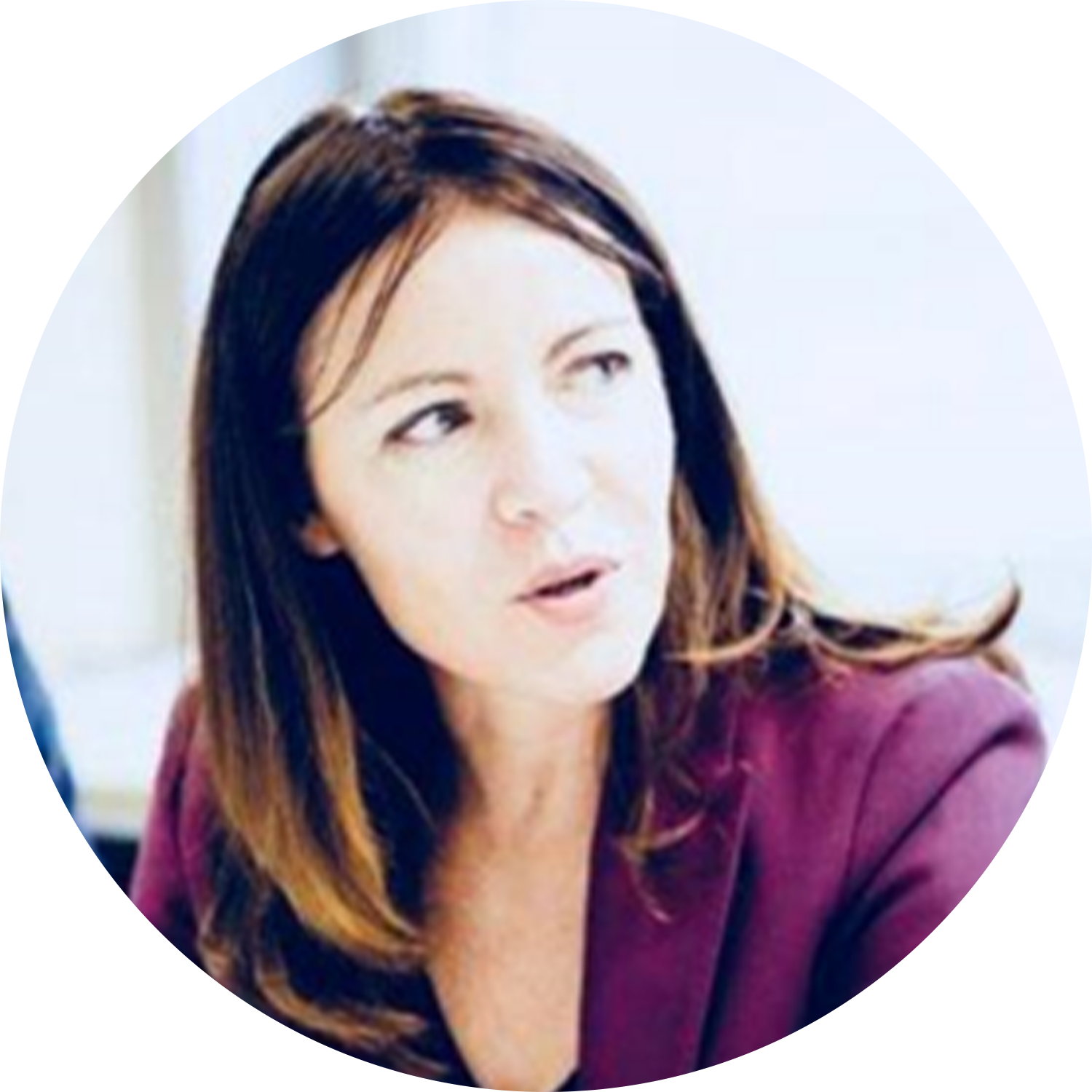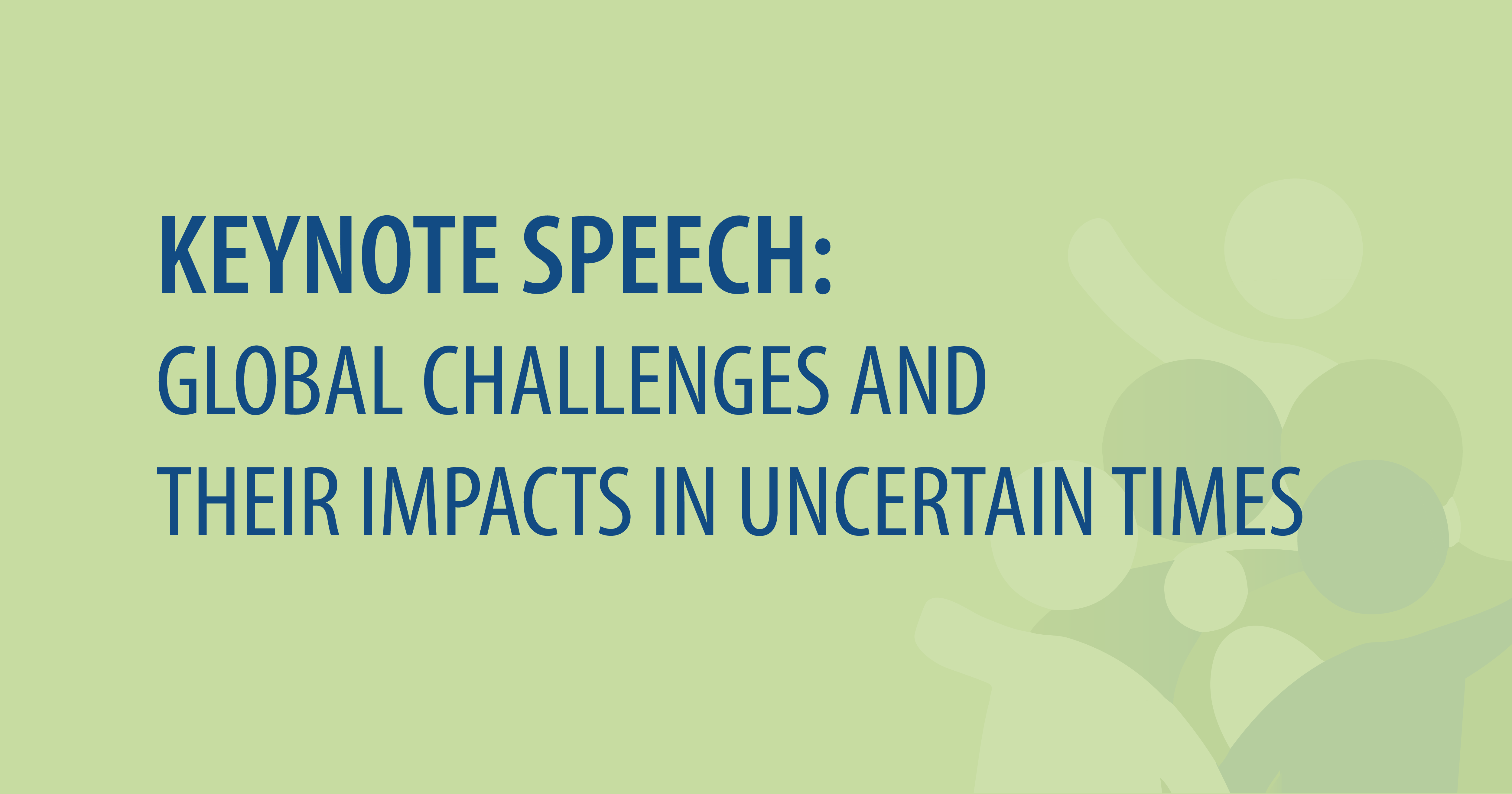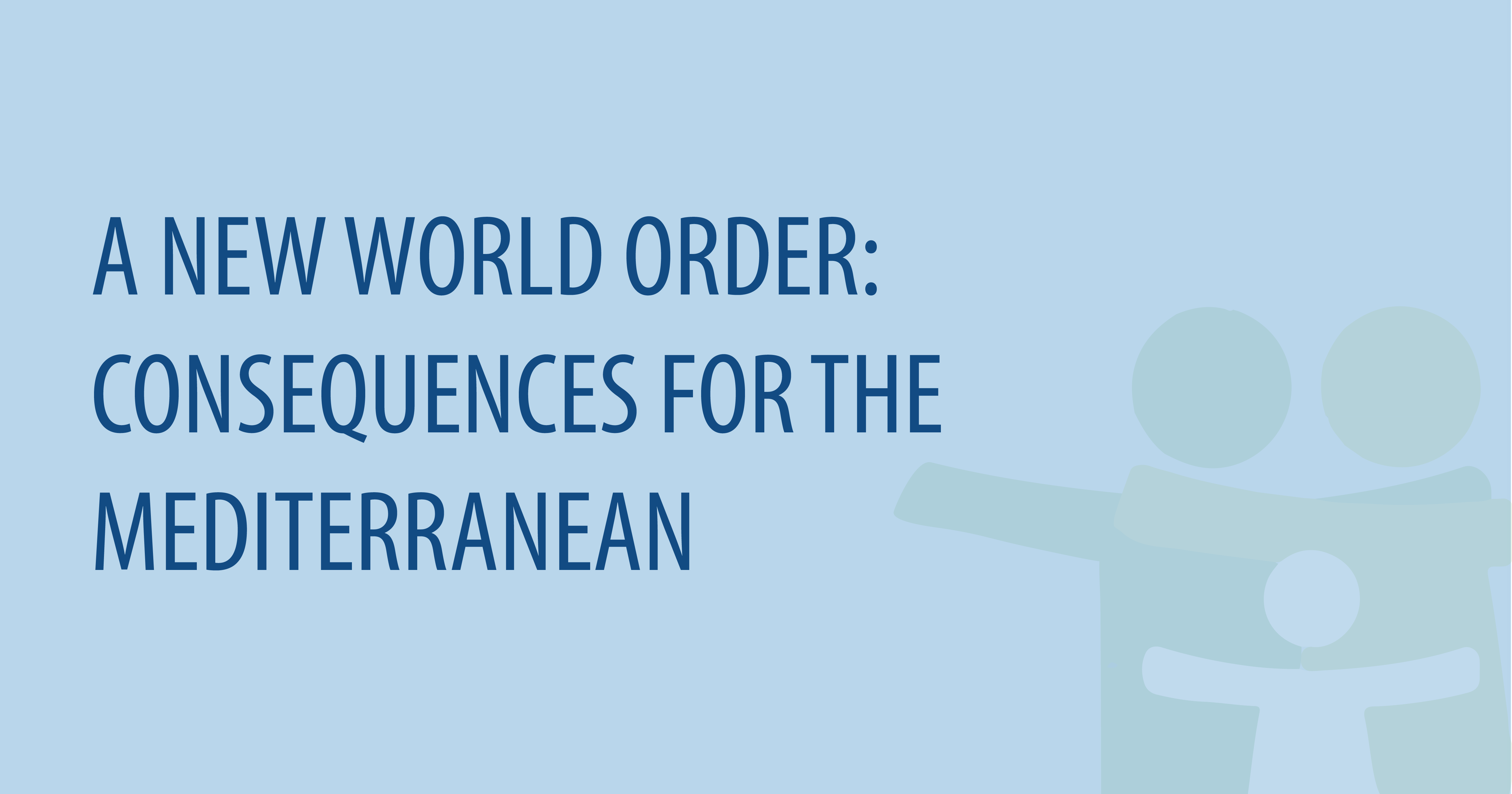Lisbon Forum 2022


The event aimed at raising awareness in northern and southern societies on how to preserve international co-operation and dialogue on issues of interdependence in the context of war.
The event took place in English and French with simultaneous interpretation
The agression of the Russian Federation against Ukraine is a violation of the UN Charter and has major global implications and represents a turning point in international relations. Not only has it led to a dramatic humanitarian crisis and major population movements across Europe, it also marks the end of the post-cold war era and of a world order based on the principles of peace, international co-operation and consensual rules.
Multilateralism is giving way to a more polarised world. National interests are increasingly defined in terms of security and power, rather than in terms of co-operation and growth, while geo-economics is being subdued by geo-politics. Will there be a shift from an international rule-based system to a power system? From open and interdependent societies to inward-looking nationalistic views?
Do repeated crises have a weary effect on international mobilisation for peace? How can organisations and actors that continue to raise their voice for peace, co-operation, and solidarity be more impactful in such fragile contexts?
These questions represent an overview of the many topics discussed during this 28th edition of the Lisbon Forum.
Adélaïde Hirwe

She is Secretary General of the African Union Diaspora Youth Initiative to raise awareness among development stakeholders on the role of Diaspora Youth in development and is committed to empowering Youth through concrete actions and with AU and OACP-EU. Her expertise is in youth and diaspora engagement, intersectional justice, digitalisation, entrepreneurship and innovation, and sustainable human-centered solutions. She was awarded for her engagement and her work by the African Union, ACP YPN, Santander Bank UK, amongst others.
Twitter: @adelaidehirwe
Instagram: @adelaide.hirwe
Adelino Vieira da Cunha da Silva

Ahmed Driss

Armine Movsesyan

Finally, she if Founder and President of the Youth Development Center of Armenia.
Christoph B. Spreng

With a background in engineering, Christoph B. Spreng evolved professionally in the telecom industry as a documentary film producer before turning towards a career in International Affairs. He worked as a correspondent for Swiss newspapers on International Affairs in Geneva and coordinated international conferences of Caux-IofC and NGO coaching from 1998 to 2008. Within that period, he became a CINGO project manager for the Elaboration of the CoE White Paper on Intercultural Dialogue. Then, he was appointed CINGO Expert for the European Union/CoE Joint Programme “Minorities in Russia: developing languages, culture, media, and civil society”. Finally, Christoph B. Spreng is a renowned guest speaker who participated in various academic and professional meetings in Barcelona, Tunis, Moscow, Lahore, The Hague, Paris, Bucharest, Stockholm, Cairo, and Pune. His expertise lies in International Human Rights, Security, and Business.
Driss El Kaissy

Haizam Amirah-Fernández

He specializes in international relations and political economy of the Middle East and North Africa, political Islam and transitions to democracy in the Arab world, where he has lived for over sixteen years.
Professor Amirah-Fernández has published extensively on Middle Eastern and North African affairs, and he is co-editor of books on North Africa and Euro-Mediterranean relations. He has lectured in universities in Europe, MENA countries and the U.S.
He holds an MA in Arab Studies on a Fulbright scholarship from Georgetown University’s Center for Contemporary Arab Studies in Washington DC. He completed his studies at Universidad Autónoma de Madrid, Université Libre de Bruxelles, and the University of California, Los Angeles (UCLA).
He has worked for the United Nations in New York and for Human Rights Watch in Washington DC. Professor Amirah-Fernández is a frequent commentator in the Spanish and international media. He speaks Spanish, Arabic, English, and French.
Twitter: @HaizamAmirah
Kateryna Shalayeva - Dr

Leïla Benabdallah

Following studies and professional experiences in France, Türkiye, UAE, and UK, she started to work in Brussels where she is parallel volunteering with different organisations. From 2017 to 2020, she was a Young Ambassador for the tri-national programs of the French-German Youth Office and she joined EU Neighbours East as a Young European Ambassador in 2018. The desire to develop higher education, mobility and employability of students and alumni also encouraged her to join the OCEANS Student & Alumni network of international exchange programmes. Together with 50 young people from 47 countries, she has been named a Youth Peace Ambassador of the ICESCO, specializing in the fields of education, science and culture.With the aim to co-create the Mediterranean region we want, she is involved in the Mediterranean Youth Council, within the group working on Economy, Education and Entrepreneurship.
Particularly concerned by quality education for all, she believes that investing in education is investing in the future.
Liliane Maury Pasquier

Manuel Montobbio - Ambassador

Pascal Odul

The regional cooperation includes the coordination of regional or thematic actions in human rights and democracy, social and human development, security, civil protection. It also covers support to regional organisations such as the Union for the Mediterranean, Anna Lindh Foundation, Council of Europe, League of Arab States, European Endowment for Democracy. The sector has two ongoing programmes with Council of Europe: CybercrimeSouth and South Programme V. It has also a large Civil Society Facility and will soon launch the phase II of Young Mediterranean Voices.
Pilar Morales

Pilar Morales holds a master’s degree in Political Science and Sociology (Universidad Complutense, Madrid), a Master's degree in Advanced European Studies (College of Europe, Bruges), a Master's degree in International Relations (CSIC, Madrid) and an MBA (IADE, Madrid). She has held several positions within the Council of Europe since 1993, and since 2011 is in charge of programming with the Council of Europe's neighbourhood countries. Since July 2021 she is based in Tunis as the Coordinator of the Neighbourhood Policy with the Southern Mediterranean and Head of the Council of Europe Office.
Rares Voicu

Mr. Voicu has been a Vice President and President of the Romanian National School Student’s Council, a position through which he has had, along with his teammates, numerous victories for Romanian school students. Rareș believes that good communication between students and teachers lies at the base of quality education. Currently, he is a Board member of OBESSU (Organising Bureau of European School Student Unions) and an elected Board Member of the European Youth Forum.
Rasmus Alenius Boserup

Rasmus joined EuroMed Rights as its Executive Director in June 2019. He previously worked seven years as Senior Researcher in contemporary Arab politics at the Danish Institute for International Studies and three years as Executive Director of the Danish-Egyptian Dialogue Institute in Cairo. He holds a PhD degree in Arabic studies from the University of Copenhagen and a doctoral degree in history and civilization from EHESS, Paris.
Saadia Wadah

She is actively involved in Morocco and at regional level for women's rights. She is currently a member of the KARAMA network and president of the Casablanca Settat regional human rights commission in Morocco.

Session 1
The war in Ukraine is adding pressure to multilateralism and challenging international co-operation in a wide range of areas such as migration, refugee flows, health, hunger, the fight against climate change or the digital transition. Its economic impact is also contributing to the deepening of inequalities worldwide.
The keynote speech explored mechanisms to overcome political antagonisms and ways in which organisations can empower those raising their voices for peace, co-operation and solidarity in such fragile contexts.

Session 2
Over the last decades there was a common will to develop North-South relations in the Mediterranean basin with the aim to turn it into an area of dialogue and exchange, guaranteeing peace, stability and prosperity. European and Mediterranean partners designed strategies to act together in partnership, recognising their growing interdependence.
This regional integration agenda suffered many setbacks along the years and despite many positive developments, the region is still in turmoil.
This session highlighted the lessons learned from new partnerships and looked at the cornerstones that need protection to mitigate the impact of the current crisis on North-South relations.
Session 3
The disruptions and repercussions of the recent global crisis and other ongoing conflicts should not derail efforts towards upholding international commitments and protecting human rights, democracy and the rule of law.
Conflict, post-conflict and, generally speaking, fragile contexts tend to undermine and threaten the upholding and protection of those values.
This session examined how to pave the way to build and/or restore peaceful and inclusive societies and to protect human rights and democracy in fragile contexts.
Session 4
Young people not only need to be equipped to thrive in a complex world, but they also need to be involved in the mechanisms and channels that converge and cooperate globally for a better future for all.
This session discussed the relevance of education systems for learners to engage with the world as empowered global citizens, but also the role of youth as peacebuilding agents.


